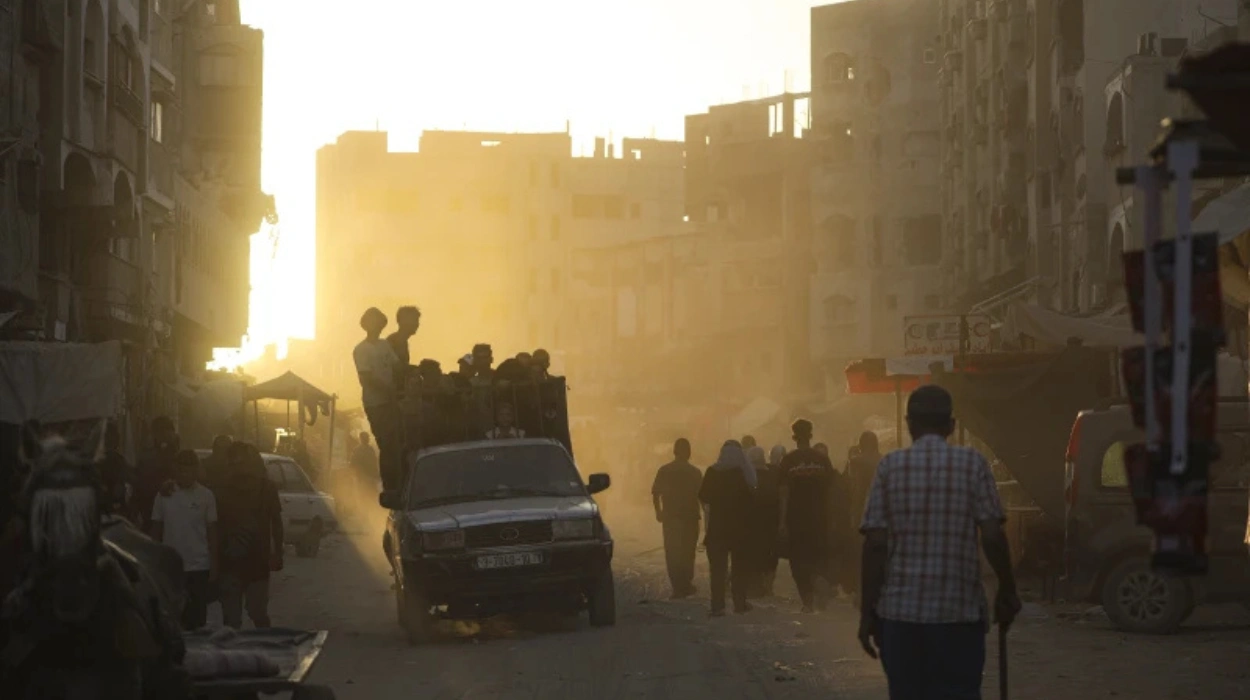USA (Transatlantic Today) – In a significant escalation of military operations, the Israeli army has issued a mass evacuation order for residents of Khan Younis, signaling an impending ground assault on Gaza’s second-largest city. This development highlights Israel’s ongoing efforts to dismantle Hamas, particularly as the region continues to grapple with the aftermath of earlier offensives.
The evacuation notice specifically affects the eastern half of Khan Younis and a large section of the southeastern Gaza Strip. Earlier in the day, the Israeli army reported that rockets had been launched from Khan Younis, raising concerns about renewed conflict in the area. The evacuation follows a history of destruction in Khan Younis, which had already suffered extensive damage during previous assaults earlier this year. Despite this, many Palestinians had returned after fleeing earlier violence in Rafah, further complicating the humanitarian situation.
The evacuation coincides with the recent release of Mohammed Abu Selmia, the former director of the Al-Shifa Hospital, who had been detained by Israeli authorities for seven months without charge. Israel accused the hospital of being used as a Hamas command center, a claim that Abu Selmia and other health officials have vehemently denied. The circumstances surrounding his detention, including allegations of torture, have raised serious questions about Israel’s handling of the situation and its claims regarding the hospital.
The decision to release Abu Selmia has sparked a political backlash in Israel, with Prime Minister Benjamin Netanyahu’s office describing it as a “grave mistake.” Political leaders across the spectrum have expressed outrage, asserting that Abu Selmia had ties to Hamas. Such claims, however, often fail to account for the Israeli security services’ protocols regarding prisoner releases.
As the evacuation unfolded, streams of civilians made their way out of the designated zone. Witnesses reported seeing families struggling to carry their belongings, with some resorting to makeshift transport methods. One displaced woman, Zeinab Abu Jazar, shared her distress, lamenting the lack of transportation and the plight of her children. “We did not find a car to ride in,” she said, while dragging a suitcase alongside a young girl.
Israel has designated Muwasi, a coastal area, as a “safe zone,” but it has become overcrowded and unsanitary, filled with makeshift tent camps. The evacuation order suggests that a military offensive in Khan Younis is imminent, despite Israel previously claiming to have decimated Hamas battalions during earlier operations.
The potential for renewed fighting in Khan Younis raises alarms about access to essential resources, including potable water. The evacuation zone includes a critical water line, which Israel had installed after facing criticism for cutting off water access during the war. Additionally, the area encompasses the Kerem Shalom crossing, a key humanitarian aid route.
With a staggering majority of Gaza’s 2.3 million residents already displaced, the ongoing conflict exacerbates the humanitarian crisis, leading to severe shortages of food, water, and medical supplies. The U.N. Secretary-General, Antonio Guterres, condemned the evacuation order, stating, “No place is safe in Gaza for Palestinian civilians,” and calling for an immediate cease-fire to halt the cycle of violence.
As the situation unfolds, the international community watches closely, concerned about the deteriorating humanitarian conditions and the ongoing conflict’s implications for regional stability.


























